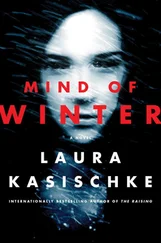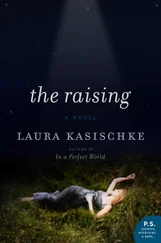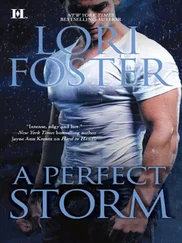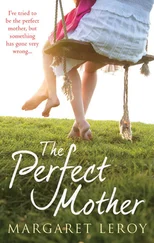Jiselle had assumed the hostility was because the nanny had been displaced from her job by Jiselle’s marriage to Mark. But, looking at this photograph, Jiselle understood what she had found. The girl, lounging on the couch in the family room—her straight brown hair hanging down over her shoulders in a glossy cascade—had a smile of such radiant pleasure on her face as she stared into the camera that there was no mistaking what this box contained. And it didn’t surprise Jiselle to find, under that photograph, one of herself in a black silk blouse, in Copenhagen, outside the Round Tower.
Jiselle’s hands were trembling, and coolly damp—but why? If Mark had searched through her own things back at her old house, he could have found a similar stash of old images of boys and men Jiselle had been with. There was a Polaroid, she knew, of Stephen in her bathtub, with his wet hair streaming down his face. Aaron, just waking up in her bed. She could hardly complain that Mark had photographs of old girlfriends, or that he had old girlfriends. Could she?
She was about to close the box when she decided to look at the newspaper clipping at the bottom of it. It was yellowed and softened, and she opened it carefully. It was an account from the St. Sophia Gazette of Joy’s “untimely death.”
Local Mother Killed While
Attempting to Protect Her Child
Joy Dorn, of 1161 Forest Glen Road, was laid to rest today at the St. Sophia Cemetery, following services. Mrs. Dorn was killed on Monday after being struck by a school bus outside her home. Her older children had already boarded the bus when her two-year-old ran into the road. In an attempt to prevent him from being hit by the bus, Mrs. Dorn ran into the road after him. Paramedics who arrived on the scene told reporters that the mother was killed instantly.
Jiselle folded the clipping up again carefully along the original creases, put it back in the shoebox, with the photographs on top of it, and put the box on the floor in the back of the closet where she’d found it.
That afternoon, Jiselle waited until she saw Brad Schmidt at the end of his driveway before she went, herself, to retrieve the empty trash can. “Hello!” she called out to him. He turned and waited for her to reach him.
He wanted, as always, to talk about the flu: “Don’t kid yourself that the rats don’t have it. And the mice. Protect yourselves.”
Jiselle nodded. She said, “Well, we’re doing what we can.”
“What kind of traps do you have?” he asked.
“Live traps.”
Brad Schmidt shook his head, as though at very bad news or at foolishness so vast there could be no other response.
The exterminator thought it might be the unusually mild winter, the early spring and summer weather, that was causing all the trouble with the rodents—a complaint across the Midwest and the eastern states. By the last week of May, you couldn’t cross a room without having a mouse dash in front of you. Every morning, when Jiselle came into the kitchen for her first cup of coffee, something small and dark and alive would flee from her. She’d scream—a high, unfamiliar yelp that seemed to come straight out of her subconscious—heart pounding, all her senses jolted to high alert.
As with the birds, there was a barrage of public service announcements about the rodents. They were not carriers of Yersinia pestis, just as hemorrhagic zoonosis was not the bubonic plague. The stories of corpses found in abandoned buildings and in ditches gnawed to pieces by rats could certainly have been true, but this did not link any particular illness to the presence of rodents. Rats had always eaten dead bodies. The usual care was needed to keep rats and mice out of homes and businesses, but panic was unnecessary and unproductive, and even un-American. Some of the announcements on television showed a flag waving at full mast against a blue sky, while the voiceover cautioned the public against panic.
A decision to use poison or traps, the exterminator told Jiselle, would depend on whether or not anyone in the house would be willing and able to empty the traps—live or otherwise. The poison was slower, he said, and less predictable, but the mice would usually go elsewhere to die. You didn’t have to see them or dispose of them. The traps, however, required “cleaning” and maintenance. Clearly, he’d noticed the absence of a man in the house.
“I’ll take care of it!” Sam insisted. “I want to do it!”
“We’re not going to kill them, are we?” Sara called from her room.
Jiselle hadn’t realized Sara was listening to the exterminator talk to her and Sam at the kitchen table, but when Sara shuffled out wearing her black Saturday morning pajamas—already (or still) in her black makeup—it would have been impossible for the exterminator not to notice her resemblance to a rodent.
Sara said, “I’m not going to live here if we’re going to kill innocent creatures.”
Jiselle held up a hand to try to keep Sara from saying anything else, but it might also have looked as if she were waving goodbye.
The exterminator looked at Jiselle.
“Live traps?” she asked.
“I can do live traps if you can do live traps,” he said.
As it happened, Sam was perfectly happy to hear that the traps would fill up fast, that some of the mice might be diseased, or “biters,” and that he would have to wear mesh gloves so he could grab the ones that refused to vacate their cages. Over the next few weeks, like an apprentice exterminator, he took complete responsibility for the mice, for the cages and their maintenance, for the whole operation of trying to keep the mice from taking up permanent residence in the house, or taking it over. Jiselle would wait in the living room as Sam ran through the family room each morning and out the back door with a cage full of mewling and fur. He quit sharing the details with her—their numbers, the state of their health, their attitudes toward their captor—after the first tale of an albino mouse “the size of a baseball” that had bled from its nostrils and—“Stop,” Jiselle had said, trembling, placing her coffee spoon down on the kitchen counter.
“I’m sorry,” Sam said, looking apologetic but smiling at the same time.
“I hope you’re burning them,” Brad Schmidt said, and Jiselle decided there’d be no point in arguing with him about why she would have live traps if she was going to burn the mice, except to be sadistic.
“Can I ask you a question?” she said instead.
“Go ahead,” Brad Schmidt said.
“So. You were here when…?” Jiselle looked toward the road, unable to finish the question.
“When Mrs. Dorn was killed? Sure! We took care of those children until Mark got back.”
“Did she—how did it happen?”
“He never told you?” Brad Schmidt’s eyebrows shot up as if he’d caught someone in a fantastic crime.
“Well, he told me of course about the bus, but of course he doesn’t like to talk about it.”
“That little Sam,” Brad Schmidt said, “he tried to dash away from her, into the road; the bus had just started up, and she went after him.” He slammed his left fist then into his right hand to show the impact. “She was a saint, that woman. Not just because of that. Because of everything. If there was ever a mother who would have wanted to die taking care of her children, that was Joy Dorn. It’s the only comfort any of us can have.”
“Thank you,” Jiselle said, “for telling me.”
Before she went to pick up the children at school that day, Jiselle stood for a long time at the front door, looking out.
There, she thought, looking to the end of the driveway, is the place where Joy died.
Читать дальше












